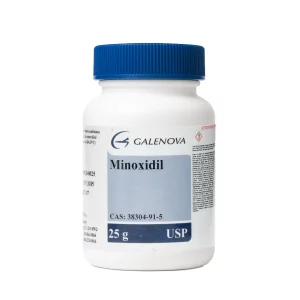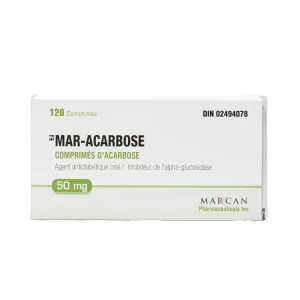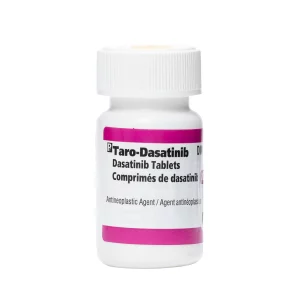Your cart is empty.
Your cart is empty.
Metformin and semaglutide have emerged as two prominent medications frequently employed in the management of blood sugar levels, particularly for individuals diagnosed with type 2 diabetes. Interestingly, their utility extends beyond diabetes care, with some individuals without the condition, especially those keenly focused on longevity and achieving a healthy weight, also exploring their potential benefits.
Metformin and weight loss are often discussed, as is the comparison of Metformin vs. Ozempic (a brand name for semaglutide). While both medications aim to foster better metabolic health, they achieve this through different biological mechanisms.
It’s important to note that while some individuals may seek to buy Metformin Online, it is a prescription medication that should only be obtained through legitimate channels with a doctor’s guidance. This article aims to comprehensively compare their key differences, notable similarities, and the specific benefits each offers based on various health priorities, including energy levels, weight management, and overall well-being.
Metformin is an oral medication essential for controlling blood sugar levels. It reduces glucose production by the liver and enhances insulin sensitivity, allowing for better glucose uptake by cells. With decades of research, Metformin has a strong safety record and effectively manages blood sugar.
Semaglutide is a weekly injectable medication originally developed for type 2 diabetes. As a GLP-1 receptor agonist, it mimics a natural hormone that regulates appetite and blood sugar levels. It stimulates insulin release when blood glucose is high, inhibits glucagon secretion, and slows gastric emptying, promoting a feeling of fullness and reduced food intake. It has recently become popular for weight management and metabolic health, even for those without diabetes.
Metformin and semaglutide differ primarily in their mechanisms of action and administration. Metformin works mainly in the liver to reduce glucose production and improve insulin sensitivity. At the same time, semaglutide influences appetite, slows gastric emptying by acting on the brain and digestive system, and stimulates insulin release in a glucose-dependent manner.
In terms of administration, Metformin is taken orally once or twice daily, whereas semaglutide is given as a weekly subcutaneous injection. This difference can affect patient preference and adherence.
Metformin has a long history of use and extensive studies on its benefits beyond blood sugar control. In contrast, semaglutide has a shorter usage history but shows promise in cardiovascular health and weight management.

Metformin and semaglutide are associated with weight loss but differ significantly in their effects. Semaglutide generally leads to more rapid and pronounced weight loss due to its appetite-regulating effects and slower gastric emptying. Clinical trials have shown substantial weight loss with semaglutide, regardless of diabetes status.
In contrast, Metformin tends to result in more gradual and modest weight changes. While some users may lose weight, it is not primarily a weight-loss medication; its effects are related to improved insulin sensitivity and metabolic efficiency. It’s essential to note that neither medication is a “magic bullet” for weight loss. Sustainable weight management relies on a healthy diet and regular physical activity, with effects varying by individual factors like body type and health goals.
Metformin and semaglutide are practical tools for lowering blood sugar levels, but they achieve this through distinct physiological pathways. Metformin primarily improves how the body utilizes its insulin, addressing insulin resistance. Enhancing insulin sensitivity helps glucose enter cells more effectively, thereby lowering blood sugar levels. Additionally, its action in reducing hepatic glucose production further contributes to glycemic control.
Semaglutide lowers blood sugar by stimulating insulin release in response to elevated glucose levels, suppressing glucagon secretion when glucose is high, and slowing down glucose absorption by delaying gastric emptying. Its impact on appetite also indirectly contributes to better blood sugar control by reducing post-meal glucose spikes. While both effectively manage blood sugar, their choice often depends on the individual’s specific health context, the primary issues contributing to their hyperglycemia, and other co-existing conditions.

The rising interest in longevity and preventive health has highlighted Metformin and semaglutide for individuals without diabetes. Metformin is noted for its potential anti-aging effects, possibly improving metabolic health by influencing aging markers and activating AMPK, a key energy regulator.
Semaglutide is recognized for its weight loss benefits and ability to reduce inflammation linked to age-related diseases. However, using Metformin and semaglutide for longevity in those without diabetes is off-label and should only be undertaken under strict medical supervision, typically within clinical trials. Self-medication is strongly discouraged.
The dosing and convenience of Metformin and semaglutide vary significantly. Metformin is an oral tablet taken once or twice daily with meals to reduce gastrointestinal side effects, which many find convenient. In contrast, semaglutide is a subcutaneous injection administered weekly. While some may appreciate the less frequent dosing, others might be uncomfortable with self-injections. Both medications generally require adherence to prescribed dosages and general healthy lifestyle recommendations, with no significant lifestyle changes needed.
Sometimes, healthcare providers prescribe Metformin and semaglutide to enhance blood sugar control and aid in weight management. Metformin reduces liver glucose production and improves insulin sensitivity, while semaglutide helps control appetite and boosts insulin release when blood sugar is high. This combination can be effective, but a qualified medical provider should determine its use, monitor for interactions and side effects, and adjust the treatment as needed.
Semaglutide typically leads to more noticeable and often more significant weight loss than Metformin, especially in the short term.
Yes, but only if prescribed by a healthcare provider. Both medications are being explored for their potential benefits in individuals without diabetes, particularly for weight management and longevity research.
Metformin may influence various aging markers and metabolic processes at a cellular level, potentially contributing to a longer and healthier lifespan.
Metformin is a daily oral tablet, while semaglutide is a once-weekly injection. The preference for ease of use often depends on the individual’s comfort with injections versus daily pill intake.
Both medications can affect glucose regulation. However, they are not intended as substitutes for healthy lifestyle habits in individuals with normal blood sugar levels. Their use in non-diabetic individuals is typically for specific health goals under medical supervision.

Minoxidil 25mg - Oral vasodilator for blood pressure management. Cardiovascular foundation support, pharmaceutical-grade standards, expert monitoring required.

Acarbose 50mg 120 Tablets - Gentle introduction to glucose control. Three-times daily with meals, precision-formulated tablet strength.

Dasatinib 20mg 60 Tablets - Flexible pediatric-strength dosing option. USP standards compliance, anytime administration, gradual increase capability.
Unlock savings on bundles and elevate your online experience today!